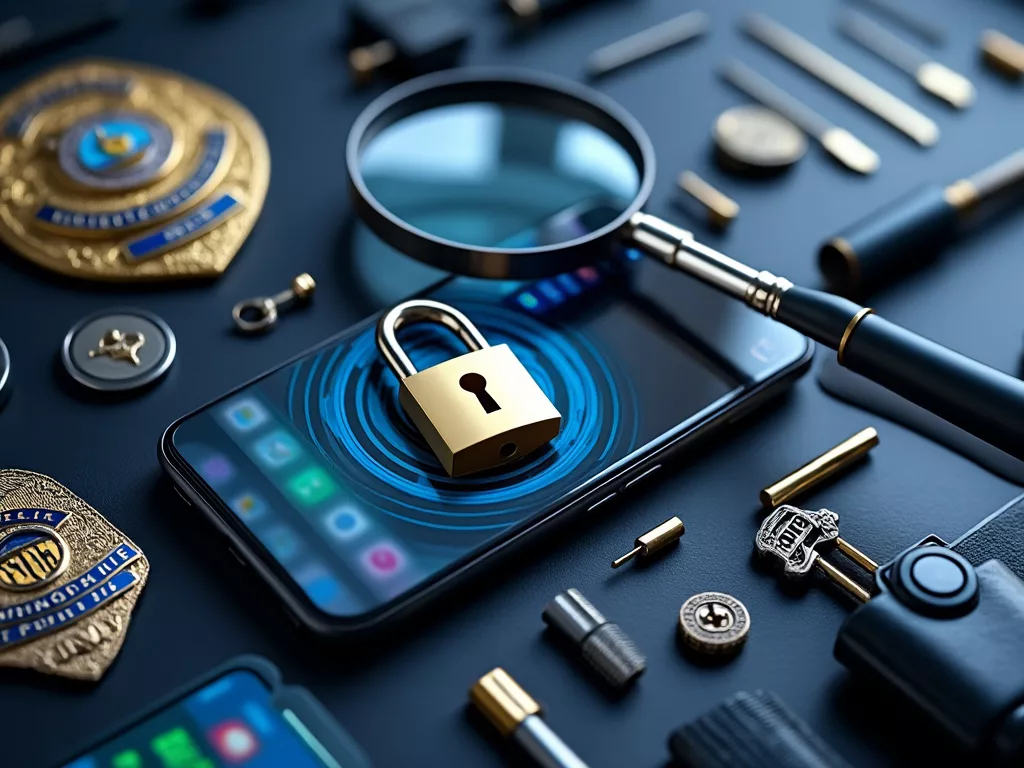Apple’s latest iOS 18.1 update has introduced a feature that’s causing quite the stir, especially among law enforcement. This feature, known as the “inactivity reboot,” automatically reboots iPhones after a period of inactivity, making them tougher to unlock for forensic analysis. Here’s how it’s affecting police investigations and why it might actually be a win for privacy.
Table of Contents
What’s Happening with iPhones and the Police?
Recently, law enforcement officers, particularly in Detroit, have reported a peculiar issue with iPhones they’ve seized for evidence. These devices are rebooting themselves, which, in turn, places them back into a security state known as Before First Unlock (BFU). This state makes it significantly harder for police to access the phone’s data using forensic tools like Cellebrate, as the phone requires the user’s passcode to unlock, rather than just a biometric like Face ID or Touch ID.
How Does the Auto-Reboot Work?
The auto-reboot feature is designed to enhance security by forcing an iPhone to restart if it detects no user interaction for an extended period, specifically noted to be about four days. This action essentially resets the phone to a state where it hasn’t been unlocked since the last reboot, enhancing security against unauthorized access.
- Enhanced Security: This feature ensures that even if an iPhone falls into the wrong hands, without the correct passcode, accessing personal data becomes a formidable challenge.
- Impact on Law Enforcement: For police, this means that if they seize an iPhone with the intention of extracting data for legal proceedings, they face a new obstacle. An iPhone that reboots itself could potentially erase or encrypt data that was in a less secure state (After First Unlock or AFU), complicating digital forensics.
Read about How to Send Emergency Satellite Message using iPhone
Rumors and Speculations
Initial theories from law enforcement suggested that iPhones might be communicating with each other to trigger these reboots, especially when disconnected from cellular networks. However, further investigation and expert analysis have clarified that this feature is more straightforward. It’s an internal mechanism triggered by the phone itself, not requiring inter-device communication.
Why Apple Might Have Done This?
Apple has long been at the forefront of user privacy, often locking horns with government agencies over data access. This feature could be seen as another layer of defense in an era where digital privacy is increasingly under threat from hackers, thieves, and even legal entities:
- Protection Against Theft: For users, this feature means an additional layer of security if their device is stolen. Thieves would find it much tougher to access or misuse the data on the phone.
- Preventing Unauthorized Access: Even if someone manages to get past biometric security, they would still need the passcode post-reboot, adding significant security.
Conclusion
While this auto-reboot feature might be causing headaches for law enforcement, it’s a testament to Apple’s commitment to user privacy. For the average iPhone user, it’s a safeguard that could protect against unauthorized access in scenarios where the device is lost or stolen. For law enforcement, it means adapting to new challenges in digital forensics, possibly encouraging more robust methods of data preservation during investigations. Whether this feature evolves or remains as is, it’s clear that privacy and security on personal devices are becoming more sophisticated, for better or worse.


























